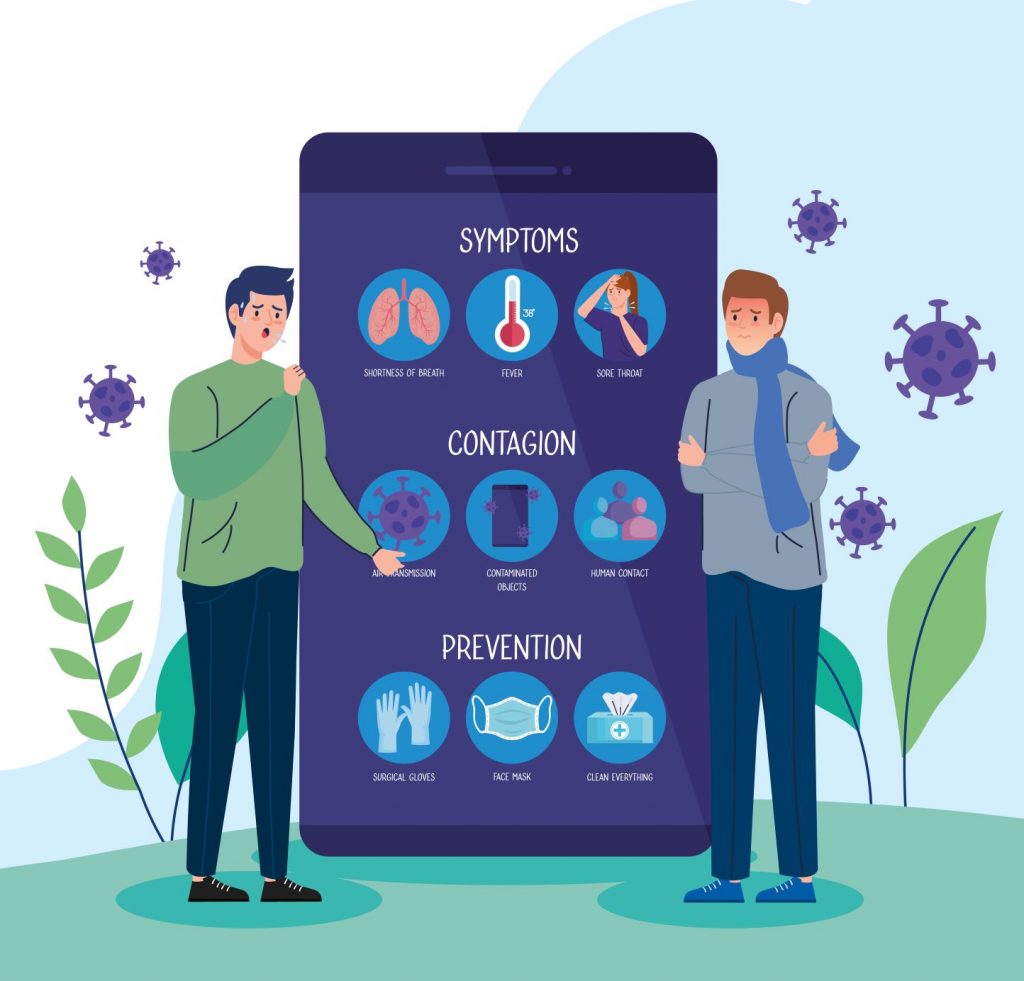In 2020 there is one thing that has gone viral, and that’s a virus. The COVID-19 coronavirus has become global public enemy number one, with online searches going through the roof. 4.2 million searches for the term ‘coronavirus update’ were made in April 2020 alone.
With these surge in searches, comes a surge in businesses targeting Cornavirus themed search terms (ahem, yes, this article included). And, of course, wherever there is muck there is gold for prospectors willing to get their hands dirty.
In terms of COVID-19 themed digital threats, the curve has not yet been flattened but continues to grow. We’ve been keeping an eye on the Coronavirus click fraud trends, so far.
Coronavirus Malware fraud
Researchers at CheckPoint have recently found that there are at least 16 malicious apps for Android devices targeting the Coronavirus crisis. Many of these aim to offer assistance (such as contact tracing) in the chaos of the pandemic, but are mostly platforms for fraud. As the team point out, “Fraudsters are exploting people’s concerns to spread mobile malware which claims to offer coronavirus related information and help to users.”
These apps are loaded with malware which is used for anything from click fraud and ad fraud, to ransomware or phishing attacks. It’s also interesting to note that there hasn’t been a significant upswing in the amount of fraud during the COVID-19 outbreak, but that the fraudsters have pivoted towards using these terms to focus their efforts.
The CheckPoint team point out that, “… (Recently) more than 30,000 new coronavirus domain names have been registered, of which 0.4% (131) were malicious and 9% (2,777) are suspicious and under investigation.” It’s now thought that new coronavirus related domain names stand at over 50,000.
It’s worth pointing out that the actual apps are not currently available on the Google app store, but are in fact downloaded directly from these suspicious websites. Usually in the form of downloadable app packages with the .apk file extension. These sideloaded apps usually include one of these malware files which fraudsters can then use as intended.
What does this mean for marketers?
The advertising platforms such as Google are aware of the risk from these Coronavirus themed apps and are monitoring them in their app stores.
One of the high risk malware trojans is Hiddad, which is short for hidden ad. This malware is currently being used in an Arabic language coronavirus app, but could be adapted to other software at any time. In fact, Hiddad has been around since at least 2017.
With the huge volume of searches for ‘coronavirus’ online, it’s advised that marketers are careful with their PPC targeting. Use negative keywords when possible and try to optimise your ad targeting with long tail keywords, specific geo-tagging and excluding locations.
If you are using coronavirus or COVID keywords in your PPC ads, keep a close eye on your IP addresses and any suspect activity such as surges in traffic or high bounce rates.
Click fraud traffic during lockdown
From our own data here at ClickCease, we’ve noticed that internet traffic is up generally, with the corresponding clicks on ads surging too. In the 30 days up until 12th May 2020, online traffic was up 26.5% compared to the previous 30 days.
The rate of fraud, overall, hovers around 14% but is still particularly high for some specific industries.
As usual, we found the industries most affected by click fraud have been the on-demand services .
Fraud traffic by industry April-May 2020
| On demand services (locksmiths,plumbers) | 45% |
| Legal services | 25% |
| Insurance | 24% |
| ecommerce | 9% |
Legal services do normally see a higher level of click fraud, so this industry is actually seeing a relative dip in fraud.
The countries most targeted for click fraud in April – May 2020:
| South Africa | 45% |
| France | 41% |
| Ukraine | 33% |
| Belgium | 31% |
| Russia | 29% |
All of the data above comes from ClickCease clients in countries where we have 20 or more clients. This allows us to give an accurate overview of fraudulent traffic by industry and territory.
Of course, we have seen that tourism and hospitality has taken a hit, but in the form of PPC cancellations. Most travel focused businesses have put the brakes on their digital marketing for the time being.
The cure for coronavirus click fraud?
Although every effort is being made to find a cure, it seems that the threat continues to grow. And just when we think we might have a handle on it, the figures jump up again…
Yes, click fraud isn’t going anywhere soon, so keeping an eye on your ads traffic is still a necessity.
ClickCease is one of the best tools to monitor and defend against click fraud on your Google or Bing Ads. In fact, as the top rated anti-click fraud software available online, ClickCease is the best tool to make sure your marketing efforts aren’t struck down by COVID-19 related click fraud.
Check out the free trial of our industry leading click fraud defence software to see for yourself.
